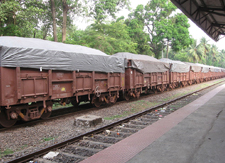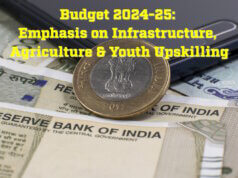In the wake of the election results and the formation of a new government in New Delhi, Vineet Agarwal, Managing Director, TCI, presents his wish list for the Indian logistics industry.
Logistics infrastructure of the country needs urgent refurbishment. The sector is plagued with inefficiencies and high costs. The priority areas that we feel that can take the sector forward include:
An industry status and an integrated policy for the logistics sector:
Logistics itself is a large industry but is plagued with various inefficiencies and high costs. An integrated approach across multiple stakeholders across central and state governments is required. TCI suggests setting up a separate regulatory authority for the logistics sector on the lines of the Insurance Regulatory & Development Authority or Telecom Regulatory Authority of India.
Increased focus on multimodal transportation:
Logistics infrastructure is a critical enabler of India’s economic development. The country’s network of roads, rail and waterways will be insufficient as freight movement is set to increase about threefold in the coming decade. This shortfall in logistics infrastructure will put India’s growth at risk. Since a large part of India’s future logistics network is still to be built, an integrated and coordinated approach in which the development of each mode, railways, waterways and roads, is matched to the needs is the need of the hour.
Long-term planning and financing for the sector:
Presently, transportation and logistics companies are not eligible to go for cheaper foreign currency funding by way of external commercial borrowing. ECB should be allowed to transportation and logistics companies for the purpose of investment in commercial vehicles, ships, construction of logistics warehouses etc. Access to ECB will help save on interest part as margins in this highly competitive and fragmented industry are already too low and under pressure.
 There is also a need to treat warehousing for non-agricultural commodities at par with infrastructure projects to encourage investment in warehousing industry.
There is also a need to treat warehousing for non-agricultural commodities at par with infrastructure projects to encourage investment in warehousing industry.
GST should be implemented with immediate effect to enable the creation of the common market to permit free and unimpeded movement of goods and services across the country.
New drivers in logistics
The expansion of social media and online shopping is driving change in logistics; surges in demand may mean sudden increases or reductions as a product receives widespread exposure through the internet, whether good or bad. As new consumers gain power in emerging economies, the desire for brands will become ever more global. For logistics this means increased unpredictability as supply chains adjust to become more flexible. Phenomena that may emerge from supply chain reconfiguration, such as near sourcing and reshoring, present opportunities for national economies that can offer a competitive trading environment and for logistics to be part of the growth (Reshoring means bringing outsourced personnel and services back to the location from which they were originally outsourced).
Reshoring of production has been identified as a possibility for several sectors, including textiles, computer manufacturing, electronics and machinery, business support services, telecommunications and research and development. The circumstances leading to this are a reduction of the wage gap with emerging markets (which is likely to continue); higher and/or volatile international transport costs; and an increasing understanding of the downsides of offshoring – problems related to factors such as quality assurance, supply chain security, responsiveness to changing UK consumer tastes and increased costs of managing remote overseas operations.
— The Logistics Report 2014 by Freight Transport Association, UK, in association with PwC












